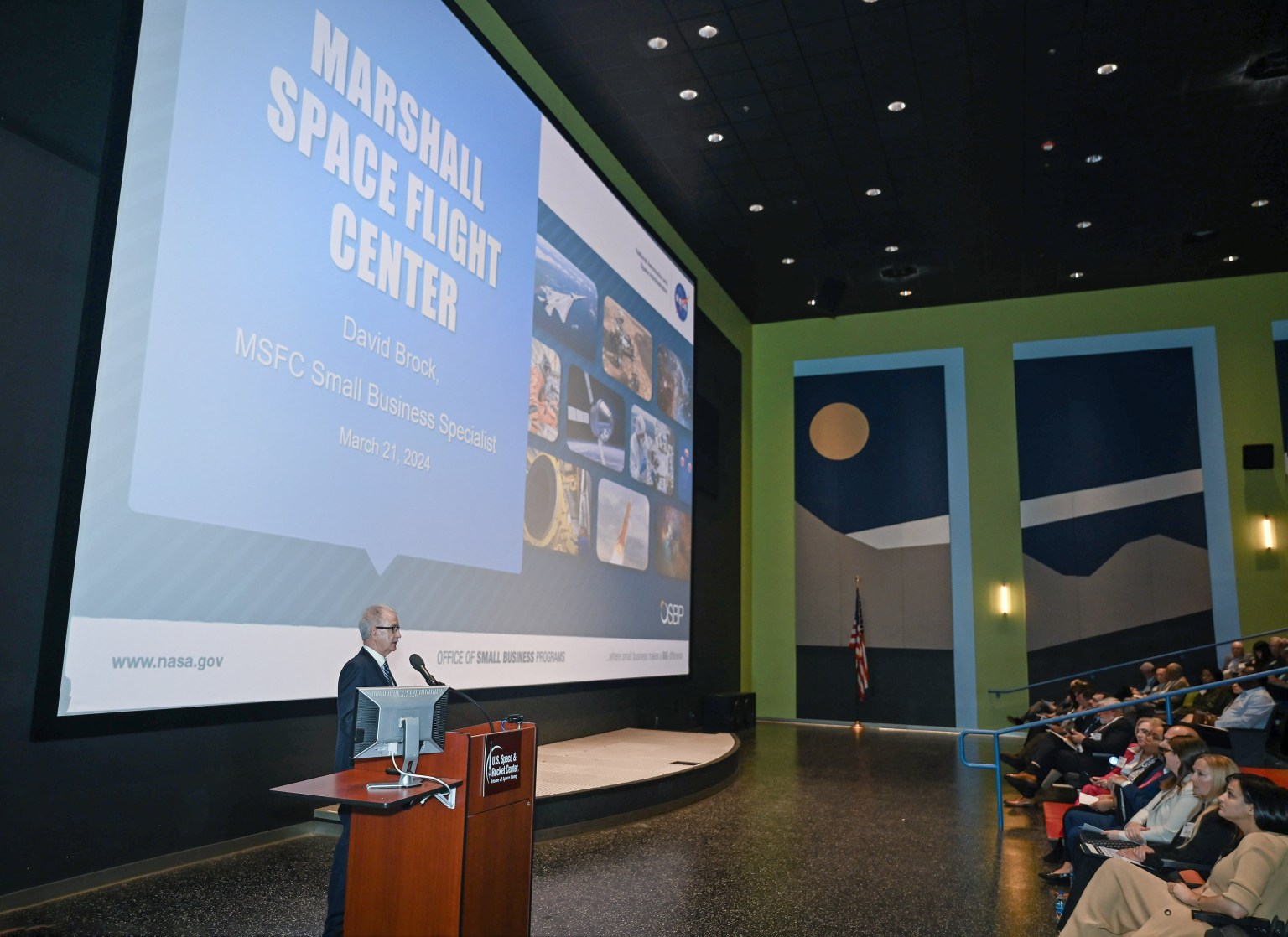
Marshall Hosts 37th Small Business Alliance Meeting
By Celine Smith
NASA's Marshall Space Flight Center hosted its 37th Small Business Alliance meeting March 21 at the U.S. Space & Rocket Center's Davidson Center for Space Exploration. The event brought together hundreds of attendees from 39 states and 21 countries to network and learn about opportunities to do business with NASA.
"Today is about bringing the NASA marketplace directly to small businesses so they cannot only learn about how to get involved at NASA, but specifically in Huntsville and at Marshall," said David Brock, small business specialist in Marshall's Office of Procurement.

The mayors of Huntsville, Madison, and Decatur gave a series of welcome remarks and thanked small businesses for their positive impact on their communities and the local economy.
Lisa Bates, deputy director of Marshall's Engineering Directorate, emphasized the importance of small businesses to Marshall. "We have had so many tremendous accomplishments and so much of that is due to partnerships with small businesses," Bates said. "We've done this together as a team."
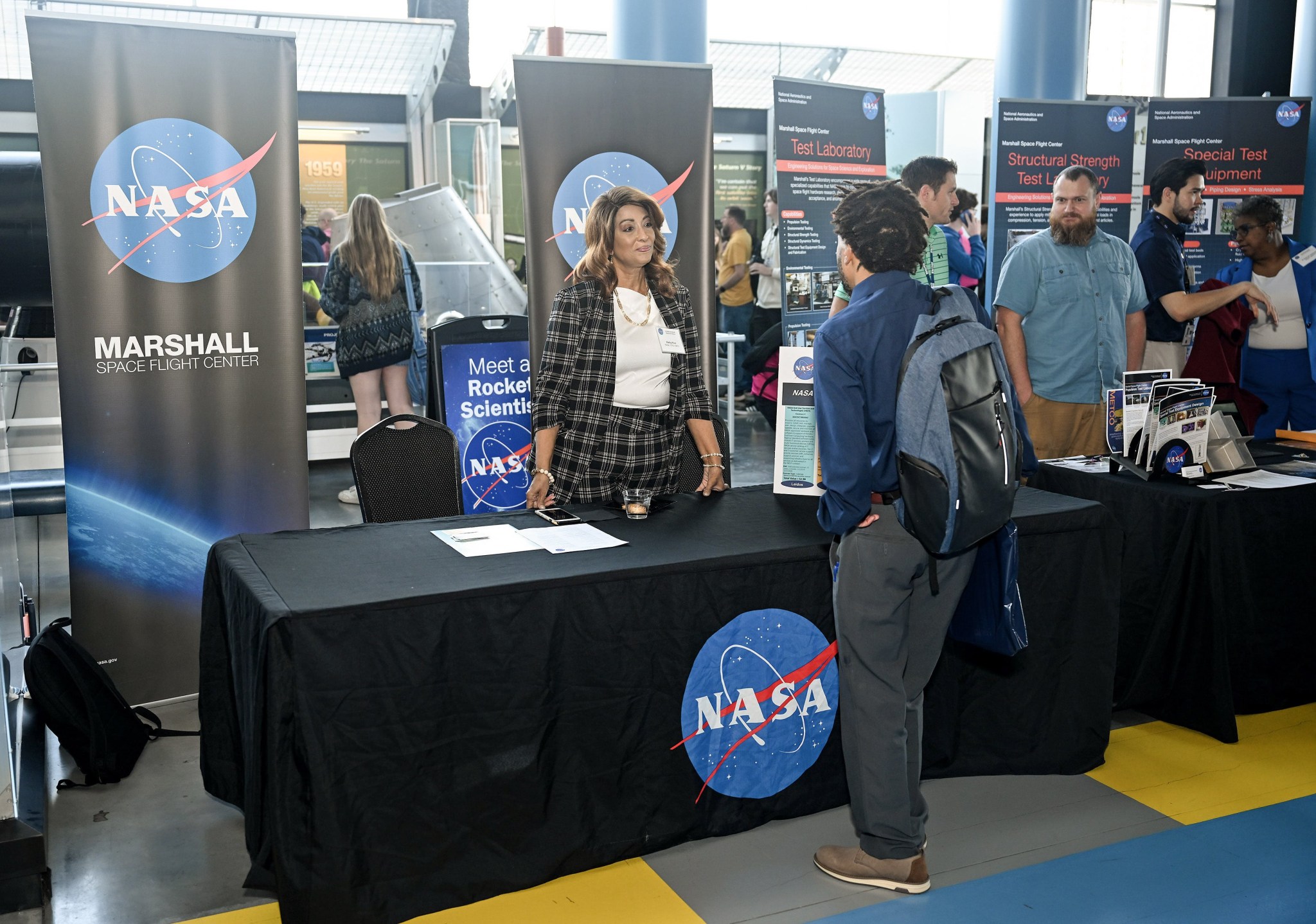
Bates said that small businesses make up more than half of NASA's suppliers and 32 of the 45 SLS (Space Launch System) suppliers in Alabama.
"I truly believe that teamwork and partnership is at the heart of every great achievement, and I look forward to being successful and exceptional with each of you," said Bates.
Smith, a Media Fusion employee, supports the Marshall Office of Communications.
Take 5 with Mitzi Adams
By Wayne Smith
Mitzi Adams watched several astronauts walk on the Moon when she was a teenager during NASA's Apollo missions. That's when Adams realized she wanted to be a NASA scientist. She also envisioned having an office on the lunar surface by 2000.
Today, Adams is a NASA scientist at the agency's Marshall Space Flight Center. She is the assistant manager of the Heliophysics and Planetary Science branch of the Science and Technology Office. And while she doesn't have an office on the Moon, she does see a path for future scientists and explorers to reach that destination.
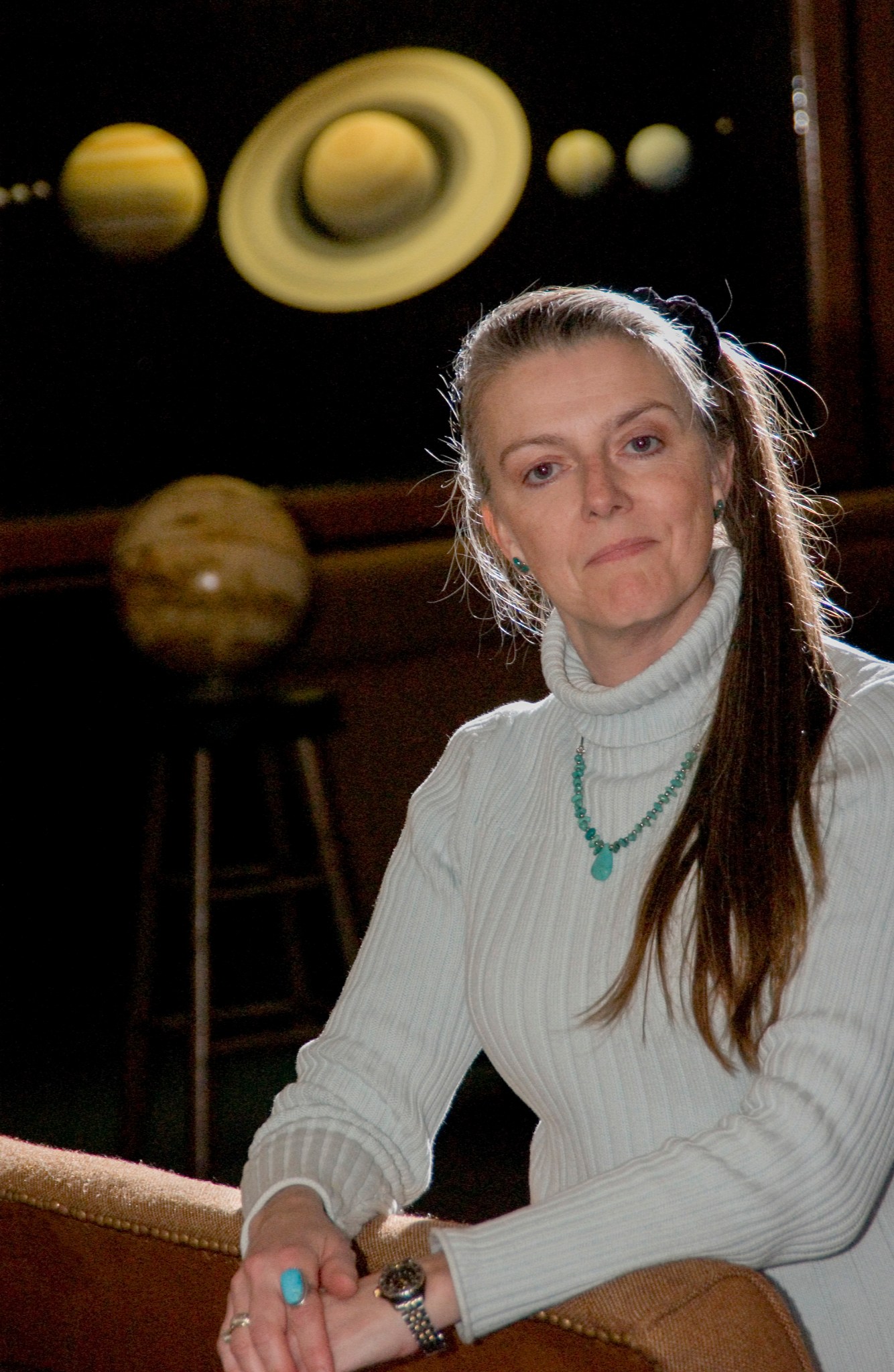
"We are on the cusp of landing another human on the Moon for the first time in more than 50 years," said Adams, who has worked at NASA for 35 years. "This time, however, there is a desire for a sustained presence, as well as a renewed interest in scientific research and discovery. If I were a high school student today, I feel that there would be a high probability that at least one of my offices would be located on the Moon in the not-too-distant future. There are many possibilities for this generation of students to be heavily involved in human space exploration. This is truly exciting."
Heliophysics encompasses the study of the Sun and its effects on Earth, the solar system, and space itself. With the focus on the upcoming total solar eclipse April 8, Adams said participating and organizing NASA outreach events for the 2017 eclipse is one of the proudest moments of her career.
"We partnered with the city of Hopkinsville, Kentucky, Austin Peay State University, the U.S. Space & Rocket Center, and The INSPIRE Project to involve high school students and the public in observations and science experiments surrounding the 2017 solar eclipse," said Adams, who is from Atlanta, Georgia. "We presented science topics to the students and allowed them to choose their observation site, based on their interests. In the intervening years since the eclipse, those INSPIRE Project students have been extremely successful, both in academics and in the business world. One of those students graduated from the Air Force Academy in 2022. That student is currently in flight school and expects to earn her wings in the next couple of months. We like to think that we were a positive influence on her and that the eclipse inspired her to obtain a STEM degree."
Question: What excites you most about the future of human space exploration, or your NASA work, and your team's role it?
Adams: For the safety of astronauts who will remain on the surface of a world devoid of a protective atmosphere, as well as when traveling between the Earth and the Moon (or Mars), it is imperative that we understand better the Sun and space weather. To date, through a fleet of spacecraft studying the Sun, we have made great strides in nowcasting solar events, such as flares and coronal-mass ejections. In addition, through a sounding-rocket program, our scientists have contributed to basic knowledge of solar physics and are beginning to unravel the puzzle surrounding magnetic-reconnection events in the solar atmosphere that may be causing flares and coronal-mass ejections.
Question: Who or what drives/motivates you?
Adams: Many things. As a teenager, I was inspired by Edgar Mitchell, lunar-module pilot on Apollo 14, whom I met and pestered throughout his life. He never discouraged me from my goals and always encouraged. I have always been a science fiction fan. I think my first science fiction book as a third-grade student was "Have Space Suit - Will Travel," by Robert Heinlein. So, it was only natural that I became a Star Trek fan. From Star Trek, I was inspired by Nichelle Nichols, who played Lt. Uhura, and Leonard Nimoy, who played Mr. Spock, a science officer.
When I speak to students, I ask what they think is the most important attribute of a scientist. The answer I seek from them is curiosity - puzzles and mysteries drive and motivate me. Observing the Sun, I have seen eruptions and phenomena that I want to understand, which drives me to access those data and do the analysis!
Question: Who or what inspired you to pursue an education/career that led you to NASA and Marshall?
Adams: I've always wanted to be a scientist and I could have studied geology or astronomy. Since becoming an astronaut also was a goal, I decided that astronomy would be the best path. Specifically, as I was about to obtain my undergraduate degree from Georgia State University, I thought I needed internship experience. Since one of my caving friends, Joe Dabbs, worked at Marshall, I asked if he knew anyone who might need a summer student. Joe put me in touch with Ron Moore with NASA and Gordon Emslie of the University of Alabama in Huntsville (UAH), who hired me for the summer. They apparently were pleased with my work because they suggested I apply to UAH for graduate school and to the graduate co-op program. I was accepted by both and earned a master's degree in physics from UAH, after which I was hired by Marshall as a research scientist in solar physics.
Question: What advice do you have for employees early in their NASA career or those in new leadership roles?
Adams: Networking is important. Engage with colleagues at meetings and seek out collaborations. Read research papers and contact those scientists who are included in the references list. Don't be intimidated by scientists who have a lot of experience. If a problem/question in your research world is appealing, find ways you can contribute to finding solutions and ask the first or second author scientist if you can help.
Question: What do you enjoy doing with your time while away from work?
Adams: Believe it or not, I enjoy reading Latin in small doses and have read two of the Harry Potter books in Latin, with help from two friends. I also enjoy hiking on trails, playing with my 3-year-old white Shepherd named Albus, which means white in Latin, and reading and watching science fiction.
Smith, a Media Fusion employee and the Marshall Star editor, supports the Marshall Office of Communications.
Steven Wofford Named Manager of SLS Stages Office at Marshall
Steven J. (Steve) Wofford has been named to the Senior Executive Service position of manager of the SLS (Space Launch System) Stages Office at NASA's Marshall Space Flight Center.
In his new role, he will lead activities and operations associated with the core stage, associated main propulsion systems, and integration of the vehicle avionics system. Wofford also will be responsible for support equipment and facilities used in the design, development, test, and transfer of SLS core stages. He previously was appointed as manager of the Block 1B/Exploration Upper Stage Development Office at Marshall in 2020.
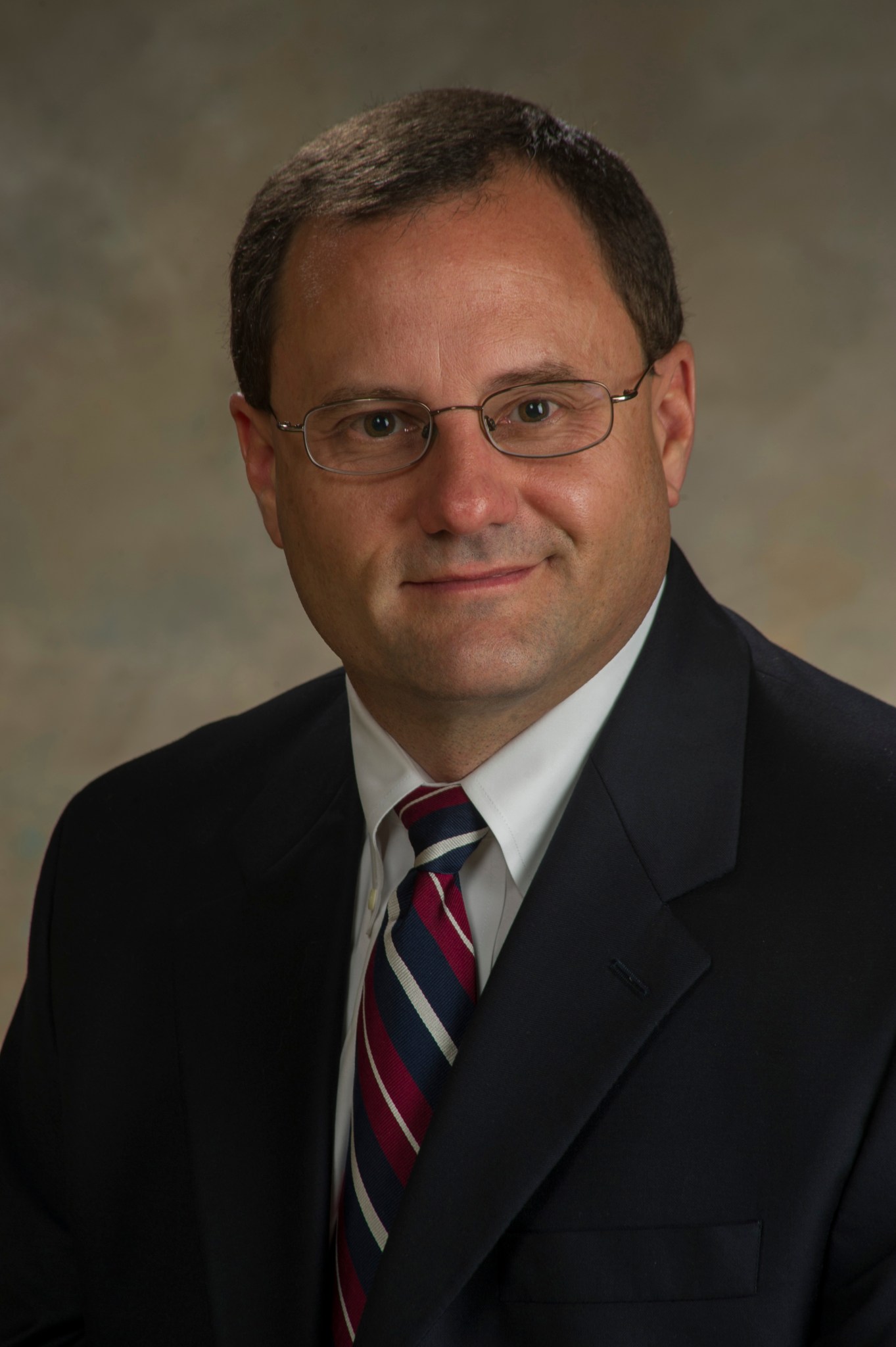
From 2014 to 2020, Wofford was manager of the SLS Program's Liquid Engines Office at Marshall. From 2012 to 2014, he was deputy director of Marshall's Safety and Mission Assurance Directorate, where he was responsible for overseeing safe execution of all center programs, projects, and institutional services. He was business manager for the Safety and Mission Assurance Directorate from 2011 to 2012.
From 2009 to 2011, Wofford was deputy manager of the Space Shuttle Main Engine Project Office at Marshall, helping to see the shuttle program to its successful conclusion in 2011. He was Shuttle Propulsion chief safety officer for the Safety and Mission Assurance Directorate from 2006 to 2009, formulating and communicating flight safety guidance and serving as Marshall's safety technical authority on a wide gamut of propulsion technical issues.
In 2005 and 2006, he led engine component design and development for engine technologies supporting the Ares I and Ares V launch vehicles, next-generation rocket development programs that helped inform work resulting in the design, delivery, and manufacture of SLS engine systems.
Wofford began his NASA career in 2000 as a subsystem manager in Marshall's Space Shuttle Main Engine Project Office. Before that, he supported the agency for more than 13 years as a contractor engineer, conducting assessment engineering and project integration engineering duties in support of the space shuttle main engine.
A Huntsville native, Wofford earned a bachelor's degree in mechanical engineering in 1986 from the University of Alabama, and a master's degree in aerospace engineering in 1991 from the University of Alabama in Huntsville.
His numerous career honors include a NASA Exceptional Achievement Medal in 2009 for his leadership in defining, implementing, and executing safety and mission assurance technical authority for the Space Shuttle Program. He also received a NASA Silver Snoopy Award in 1998, presented to team members who have made significant contributions to the human spaceflight program; and a Spaceflight Awareness Award in 1992 for his contributions as a contractor to the space shuttle main engine. In 2018, he was named a distinguished fellow of the University of Alabama in Tuscaloosa's College of Engineering.
Wofford and his wife, Marisa, reside in Huntsville and have two sons.
Marshall's Women of Excellence Host Author for Women's History Month Event
The Women of Excellence employee resource group at NASA's Marshall Space Flight Center hosted an event March 18 in association with Women's History Month.
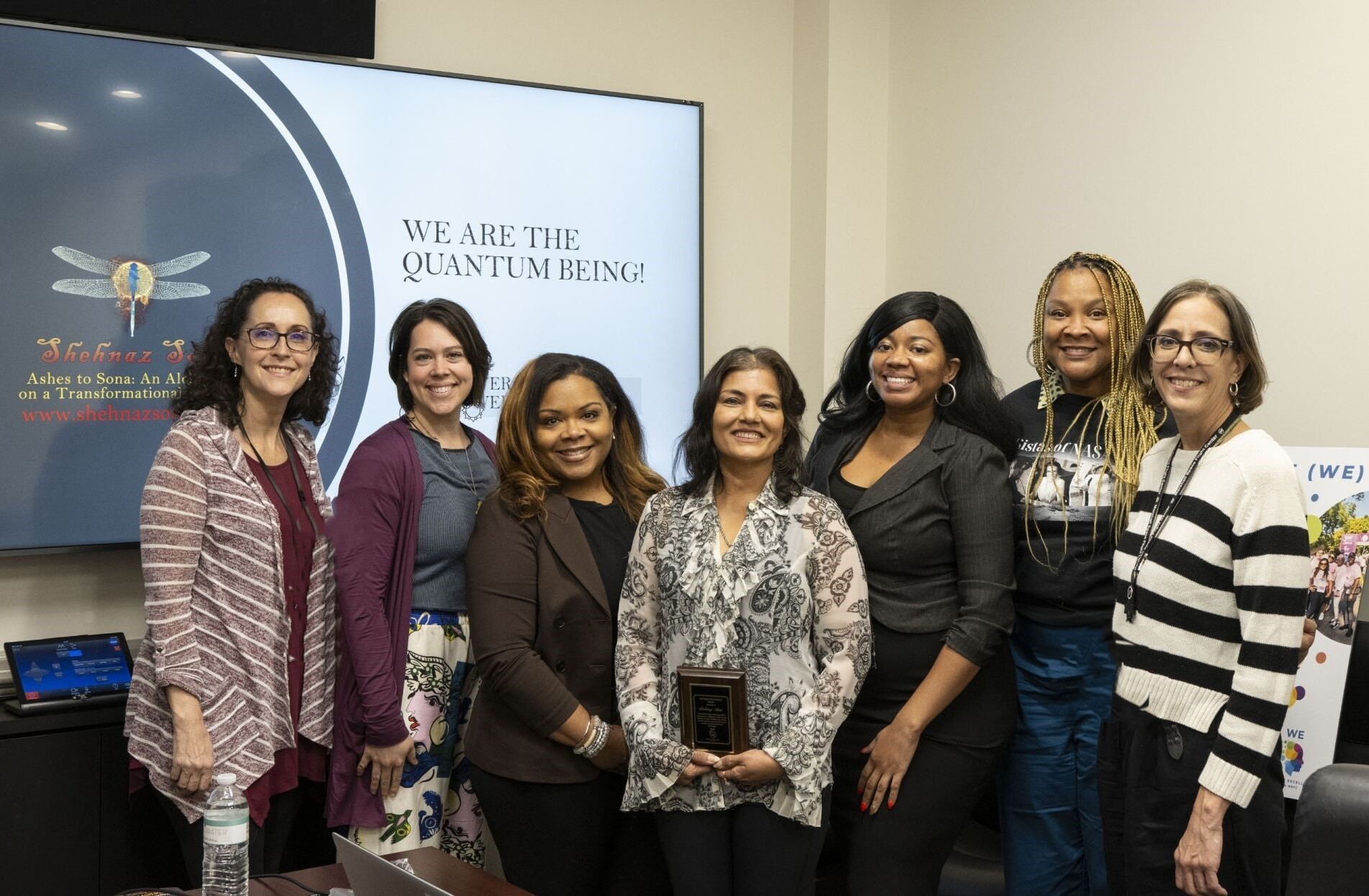
The event, titled "Self-Ignite into Destiny: A Pivot from Stressful Environments," was part of NASA's agencywide table-talk series.
Shehnaz Soni, a NASA senior systems engineer, author, and speaker, discussed her story, methodologies to reduce stress, and the importance of self-care in a unique way, reiterating that "We Are the Quantum Being."






